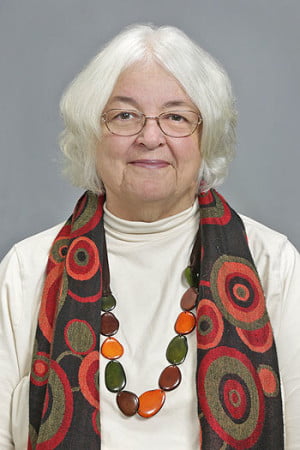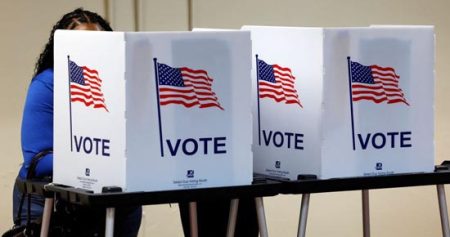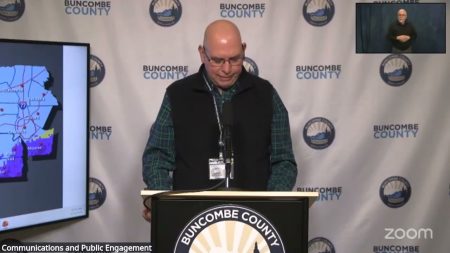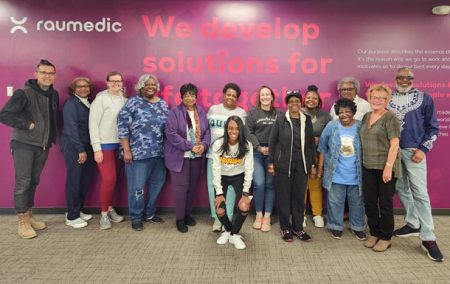The Infamous “HB 2” Bill

By Nelda Holder –
“HB 2,” the legislation that passed in a special, one-day session of the General Assembly on March 23, has been in the national news ever since.
In case you have any questions at this point about North Carolina’s now infamous “HB 2,” the legislation that passed in a special, one-day session of the General Assembly on March 23 and has been in the national news ever since, it is titled “Public Facilities Privacy & Security Act” and, basically, it does this:
- Requires that in state facilities, including schools and universities, multiple-occupancy bathroom or changing facilities must be designated for use by persons based on their biological sex, as affirmed on their birth certificate – therefore forbidding transgender persons from using the facility of their chosen sex unless they obtain a birth certificate signifying their change. (This law voids existing protections for transgender persons in cities such as Carrboro and Raleigh, and a housing discrimination ordinance in Greensboro.)
- Forbids, “under the police power of the State,” local governments from adopting regulations or policies determining wage levels, hours of labor, benefits, or well-being of minors in the workforce within their jurisdiction — i.e., local governments may not set minimum wage and other employment requirements within their boundaries.
Forbids cities and counties from enacting any “qualification-based selection” in contracting other than that required by state law — i.e., no wage-level control, etc.
- Declares that the public policy of the state is to protect and safeguard “the right and opportunity of all individuals” in places of public accommodation, “free of discrimination because of race, religion, color, national origin, or biological sex.” (This list omits the more inclusive sexual preference/orientation language in many current policies, as well as transgender status.)
- Forbids any person from bringing civil action in state courts based upon the state’s public policy on discrimination (including racial, gender, and other discrimination). Such action must now be taken directly to the federal court level, and initiating that action must take place within 180 days — as opposed to the three-year limit under former state law.
This legislation was passed, according to sponsors, in reaction to a local ordinance in Charlotte that offered non-discrimination protection to transgender people, but its scope goes far beyond that specific issue and has brought up the debate, once again, of local control in a state that depends on high-density business and population centers as its economic engine.
Reactions to the law were swift. A federal lawsuit was filed by a coalition of groups led by the American Civil Liberties Union. Businesses and sports organizations immediately spoke out against the law. Charlotte lost a new, 400-job facility planned there by Pay Pal, which withdrew from the project “to oppose discrimination,” and a 500-job expansion by Red Ventures National there appears to also be in jeopardy. National news coverage exploded over the political implications of the law. Bruce Springsteen cancelled a Greensboro concert to support the law’s opposition. Rob Reiner announced he would not shoot films in the state unless the law is repealed. The White House issued a statement confirming a commitment to non-discrimination on behalf of the LGBT community.
Meanwhile, back in Asheville
Early in April, Urban News contacted several members of the Buncombe County legislative for their opinions on the fate of House Bill 2 in the upcoming session. In the midst of many calls for its repeal, they did not anticipate anything more significant than perhaps “a few tweaks.”

Sen. Terry Van Duyn (D), who was part of an all-Democratic walkout when the Senate voted on March 23, confessed that she is “still broken-hearted after HB 2, so I’m not my usual optimistic self. I want your readers to know, this too will pass, but right now I’m not very hopeful we will be moving North Carolina forward in the short session.”

Rep. John Ager (D) from District 115 noted that he would be in favor of a total repeal of the act, but anticipates that there may only be some small revisions in consideration of the “corporate reaction and the possible loss of Title IX funds.” Rep. Brian Turner (D) of District 116 agreed, noting that “the revision I would support would be a repeal (but) I don’t believe that we will see any sort of significant adjustment to that bill.”

Those comments came before the CEO of the Asheville Area Chamber of Commerce, Kit Cramer, disclosed that the new law was cited as something that could likely keep a non-disclosed company from bringing 500 new tech jobs to the area, saying the company’s CEO does not intend to invest “another dime” in North Carolina while the new law stands (see Asheville Citizen-Times, April 9: “Chamber: HB2 may end Buncombe bid for 500 jobs”).
Turner had already expressed worries about the local economy and jobs, alling decisions such as the one announced by Pay Pal “kind of a caution,” and asking, “How many businesses are just not going to look at North Carolina anymore … just quietly cross North Carolina off the list?” He added that he had already heard from at least one local hotel that is getting cancellations expressly blamed on the law. “What are we going to see in terms of tourism?”
The human aspects of the law
In its 2036 Vision plan, the City of Asheville speaks of its “diverse community” as an asset. And in the wake of the passage of HB 2, Mayor Esther Manheimer’s official statement regarding the bill cited that vision and proclaimed: “Asheville is a welcoming city that thrives on diversity and equality. We take pride in our unique character and openness to all, without regard to race, color, religion, national origin, age, gender, sexual orientation, gender identity, gender expression, familial status or disability.”
Manheimer also announced that City Council will consider a resolution regarding the passage of HB 2 at its April 12 meeting. That night the council will also adopt its Legislative Agenda for the short session (which includes a statement regarding preserving and enhancing “municipal authority”).
The proposed resolution regarding HB 2 notes that the new statewide standards for “nondiscrimination” set forth in that law to prohibit discrimination do not offer those protections “to all individuals,” and affirms the city of Asheville as a “welcoming, diverse city, which is dedicated to the principles of nondiscrimination, and the full inclusion and engagement by all individuals in their civil rights, benefits and privileges, regardless of race, color, religion, age, national origin, gender, sexual orientation, gender identity, gender expression, familial status or disability.”
The resolution as proposed also affirms the prohibition of discrimination in its employment practices, and “supports authority which would allow municipalities and other local governments to protect the rights of all of their citizens.”
In other reactions to the new law, UNC Asheville Chancellor Mary Grant announced that all schools in the UNC system, as instructed by UNC President Margaret Spellings, were being required to obey the new law by designating all multiple-occupancy bathroom and changing facility for use only by persons based on their “biological sex.” Grant added that a lawsuit had been filed by the ACLU of North Carolina, Equality NC, and members of the UNC community, “seeking to stop implementation of this law,” and the university was working to understand the law’s implications and the subsequent legal challenge.
“Many of you,” she said of the community of UNCA students, faculty, staff and alumni, “have expressed concerns, fears, and anxiety over the passage of this bill. I share these concerns. … I want to assure you that we fully support our LGBTQ community and we will continue to do everything in our power to ensure that our campus is a safe place for people of all faiths, races, sexual orientations, abilities and gender identities,” where people are treated “with dignity and equity.”
The school already has in place more than two dozen “gender-neutral” bathrooms, according to an April 8 report by WLOS News, due to a campaign that is more than five years old that aimed to “accommodate transgender students as well as families visiting the campus.” According to the vice chancellor of student affairs, Dr. Jill Moffitt, the university’s anti-discrimination policies “are intact, and House Bill 2 doesn’t require that we change it.”
Southern values, Southern equality
Less than 24 hours following Gov. Pat McCrory’s late-night signing of the March 23 law, the Asheville-based Campaign for Southern Equality and several other local civil rights organizations staged a late-afternoon rally at the Vance Memorial, attended by some 200-300 people. Speakers included CSE’s executive director, Jasmine Beach-Ferrara (current Democratic candidate for the Buncombe County Board of Commissioners), Sen. Terry Van Duyn, and community organizer Carmen Ramos-Kennedy, president of the Asheville Buncombe County NAACP. Attendees included families and individuals — one a rainbow-flag-waving, retired psychologist named (Dr.) Judith Quick, who brought the law’s meaning to a visceral level.
“If the great state of North Carolina is about Southern kindness and good values, how do you tell an entire group of young people that they’re not good enough — godly enough — to have equal rights?” she said. “The psychological harm that this does to (them) could be extremely damaging. To me, it’s unconscionable.”
CSE and the local Tranzmission organization are now gearing up to offer free “All-Gender Restroom” signs to Asheville businesses, nonprofits, and faith communities in a campaign to promote “bathroom equality” throughout the private community, which the state law leaves to its own devices.
Meanwhile, as featured in Mother Jones’ query into policing this new law, a spokesperson for the Asheville Police Department told the magazine: “We’re not checking birth certificates,” alluding to the requirement in public facilities to utilize the bathroom marked for the sex on one’s birth record.
Other priorities for the legislative session
But when the legislators roll back to Raleigh for the upcoming session later this month, there will be other issues to pursue on behalf of the state and the region. Asked what they perceived as other top priorities outside HB 2, all three Statehouse members we spoke to immediately pointed to education needs in the state — specifically in public school teacher and administrative pay but also, as highlighted by Ager, in planning for the community colleges of the state. Van Duyn also named healthcare a state priority, as did Ager in calling for Medicaid expansion. And both Ager and Turner mentioned probable action on licensure at the state level that could produce a rollback neither supported — specifically in such professional fields as acupuncture, physical therapy, and podiatry.
Turner, in speaking against the licensing rollback, noted that the argument against licensure is that it provides “sort of a walled garden,” but he feels the regulations are in place to protect the general public. “If a company or person provides poor service, they’re going out of business,” he gave as an analogy for no state control. “That’s great if they’re making T-shirts or sneakers.” But if they’re making a car seat for your child, he continued, “you want to rely on government” for making sure certain standards are met.
Turner also mentioned that the environment is also a top priority for him, especially since his district contains “two superfund sites and the [Duke Energy] coal ash pond.” And for Ager, the fate of the Renewable Energy Portfolio standard that dictates NC’s energy mix is on his radar, as are corporate and income tax rates — particularly potential expansion of sales taxes for lawyers fees, doctor fees, vet and pet-grooming fees.
Specific issues for Asheville/Buncombe County and Western NC
The legislators also cited specific issues affecting the Asheville/Buncombe County region and western NC in particular. For Ager, a top priority is resolving the I-26 Connector route and “pushing forward with a completion of the project.” He would also like to see, on behalf of the western region, a resolution to the funding models for traditional public schools and charter schools; restoration of the solar tax credit and the conservation easement tax credit; and a reduction in farm income to qualify for sales tax exemption (from $10,000 to $5,000).
Turner’s regional issues include public education, and making sure Duke Power’s coal ash impoundments are safely and successfully dealt with. But he also has specific hopes to find a way to extend broadband access into rural WNC, and to provide for access to water and sewerage disposal. Buncombe County, Turner commented, is unique in that the Asheville metropolitan area places the entire county into a “Tier 3” ranking, which is the same ranking as the more populous Mecklenburg and Wake counties. “When you get outside Asheville,” Turner said, there are areas that deserve the assistance available to Tier 2 or Tier 1 categories. “The county loses out,” he thinks, “because it’s Tier 3. I’ve been looking into a different way of ranking.”
For Van Duyn, who happens to be the Democratic whip in the Senate, the most important legislation for the regions would be Medicaid expansion. “They said we couldn’t take the Medicaid expansion until they reformed Medicaid. I don’t think they can effectively reform Medicaid if they don’t take the Medicaid expansion. With 500,000 people going without care, and billions of dollars in taxpayer money going to other states, what are we waiting for?”
Note: Buncombe County’s addition legislators, Rep. Susan Fisher (D) and Sen. Tom Apodaca (R), were also asked to contribute to this report. Fisher was unavailable because she was out of town. There was no response from Apodaca.
Nelda Holder is the author of The Thirteenth Juror – Ferguson: A Personal Look at the Grand Jury Transcripts.







